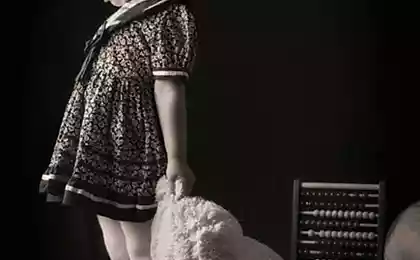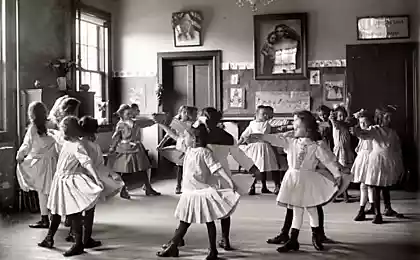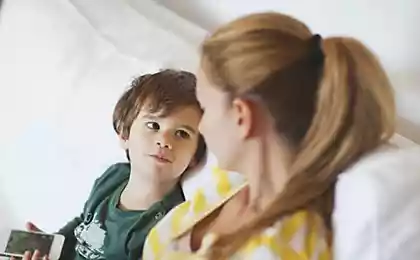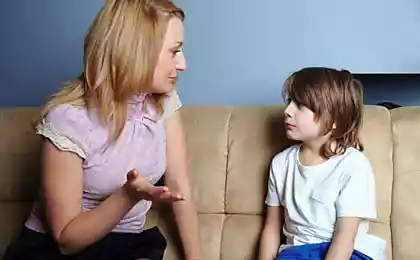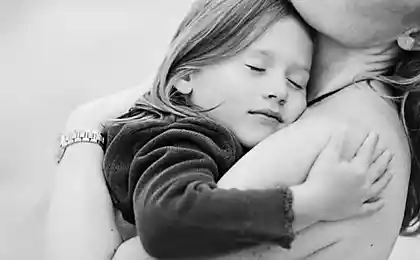421
How to praise your child — 4 ways
"Why children make excuses when I praise them? I tell the daughter that she's smart, and in response to hear said, "No, Lisa's smarter!" I say she's beautiful, and she said, "I'm fat!". I say she is a wonderful big sister and a gifted artist. And my daughter immediately shpynyat younger brother and says that he can't draw. Sometimes I think she tries to prove me wrong!
With the eldest son it is even worse. In training he was throwing the ball to the basket and finally got. I shouted: "Hurrah! Great! You're a real basketball player!" He threw the ball aside and walked away. Don't understand. Every time I try to praise their children, my words have the opposite effect."
Why some praise it only gets worse
Many parents are faced with this problem. Usually the negative reaction of the child on the praise occurs when a positive assessment is given to man, not his action. "You're a real basketball player!" or "You're so good!".
Also avoid generalizing words such as "smart", "beautiful" and "lovely". Their use not only concentrate on their own shortcomings, but also pushes for cessation attempts. If I am already perfect, there is no need to try, to risk. And what if next time I fail to meet?
What do you need to find the words to truly praise a child?
How to praise? Correct praise gives me confidence and desire to continue working. If we want to help children believe in themselves, then you need to forget words like "good", "excellent", "fantastic", "best".
1. Describe your feelings expect of you praise? Describe what you feel: "I see you tried to solve the problem in different ways. I like the one you chose.
"Hurrah! The ball went straight into the basket. What an accurate throw! I liked how you did it."
"I appreciate your help. Thank you for left things. I am very pleased".
"I like this picture. The bird on it as if alive!"
"Every time remember that your joke can't stop laughing".
When you describe to the child what you see or feel, it has an almost magical effect on him. In your own words, you not only confirm the value of the effort of the baby and give him confidence. And thereby motivate him to further efforts.
So right after you praise a child begins to think, "Yeah, I haven't been training as long as I didn't get to throw the ball in the basket...", "the more I paint the better I get...", "I can be kind", "I know how to joke...".
There's no doubt that that is the way it is! Describe your feelings and impressions. Thus, you not only show him that you really like the result, but also be able to mount your self-confidence and in their abilities, and will nurture a sense of responsibility.
2. Summarize and list what you see three baby ran to you and timidly holds out the drawing. Blue blot on little green legs here and there spots are smaller, yellow. While you are assessing what this could be, the child is waiting for your evaluation.
Many parents immediately dismiss the phrase: "Yes, beautiful, well done." But the kid is waiting for you not these words.
Also, you can answer: "something strange... a Hippo? Something like, let me show you how it should be draw. But this option will be incorrect. Another stamp will replace their own vision of the baby.
So, how can that be? The child is still standing and anxiously waiting for your response.
Take the picture and carefully consider it, and then with approval in his voice say: "You drew something big and blue... I see a little green legs, and yellow spots. And there are still empty space..."
Listing details, you agree to Express interest and don't appreciate the work — which is good. You say that the kid worked, and not how he did it. As a rule, this approach immediately establishes the right contact — the child picking up the words of the adult, with enthusiasm he continues: "This is a Behemoth! At first I wanted to draw an elephant, but I did not succeed. Here is yellow flowers. And there will be even a tree, let me draw..."
You will feel how the mood of the baby. Now the child is involved in communication, it is no longer subject to the authoritative opinion of himself and is able to assess its performance. But in the beginning, it has depended on your evaluation. But in the course of the conversation the kid got the desired approval and felt a genuine interest in my occupation.
Give some examples of summative assessments activities:
"I knew immediately that you were rehearsing. Your fingers can remember all the artwork to the last note. I would call it tenacity.
"I noticed that you left the last piece of cake for your sister. Here is will power! I'm glad you thought about the old man.
"Did you wash all the dishes! As a purely! That's accountability".
But if praise is not for what? This also happens. Imagine: morning, you're late for work, and your daughter barely tying the lace on sneakers. Or since it's late, and your teenage son have no intention to sit for lessons.
There are times when parents really want to give kids everything that they think:
"Well, why are you so slow in doing everything! How much can you dress up!"
"If you sat down at lessons right after school, instead of playing stupid video games, it would already have done their homework! Always leave things to the last moment!"
In any case, don't do this: proceed wisely. As the saying goes: "be Quiet till the thoughts will not be censored and ethical". Take a deep breath and try to follow our advice: describe the child's achievements out loud. Teach all that he has done:
"So, you washed, got dressed, left only to tie a shoelace — are you ready!"
"Let's look together... three math homework... yeah, not easy. I see you are doing in class. If you start now, you'll have time for half an hour. There will be questions — ask, I will help you.
So we celebrate progress (even small), we neutralize the possible conflict situation, avoid recrimination and gives the child confidence and desire to continue the effort.
If my child hypersensitive? Some children actually get upset, if did something wrong. They are very sensitive to comments and on their own mistakes. One mother told me how her three year old son, turning to her with a question, accidentally spilled juice from the Cup onto the shirt and on the floor. The child began to cry hysterically.
— Kolya! solemnly and quietly said mother, " you made a discovery!
The boy stopped crying and stared at her. The mother continued in the same tone:
— You just found that when you shake the Cup, the juice may splatter!
After some time we came to visit grandma. She put her purse and glasses on the table. Then I remembered that she needs to take the medicine. Went for the purse and dropped points. In the hearts of the grandmother exclaimed:
— Well!
Kohl also said solemnly:
— Grandma, you just made a discovery!
"What is that? — surprised woman.
— If you put points in the bag, they may fall!
— Well naaaaaa! — admiringly said the grandmother, and kissed the baby. I will remember it!
Summing up
We have shared with you the basic techniques of praise that you can safely use in their parental practice. Stick to simple rules:
1. Describe your feelings:
— Like my drawing?
I see you tried very hard!
2. Summarize what you see:
— Like my drawing?
— I see a house, weed, the pipe, and that's it?
3. Describe everything that has already been made:
I'm bored to finish this picture.
— Have you drew a house, a pot pipe, but there remains quite a bit of space.
4. Hooray, open!
— I accidentally burst a hole in my picture... (tears, frustration)
— Bob! You just made a discovery: if a wet paper rubbing "the eraser", the paper may tear.published
Source: mamsy.ru/blog/article/539?utm_source=fb&utm_medium=smm&utm_campaign=loyaltycontent&utm_content=profilepost%2Fmamsypink
Sepp Holzer: Like in the harsh climate to grow heat-loving plants and fruit trees
How to decorate a country station with led lights?

